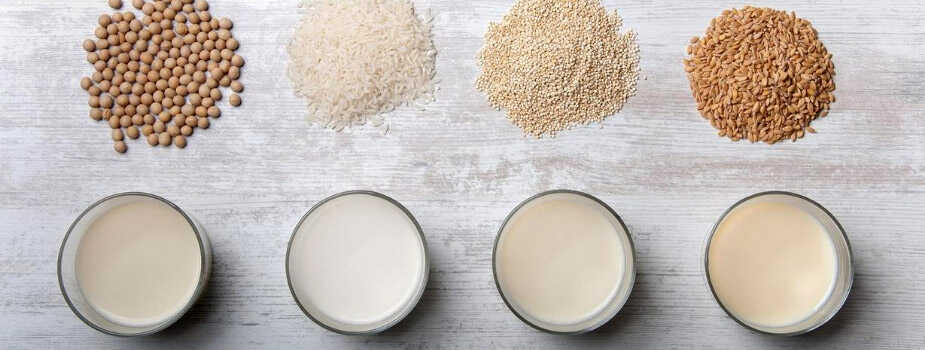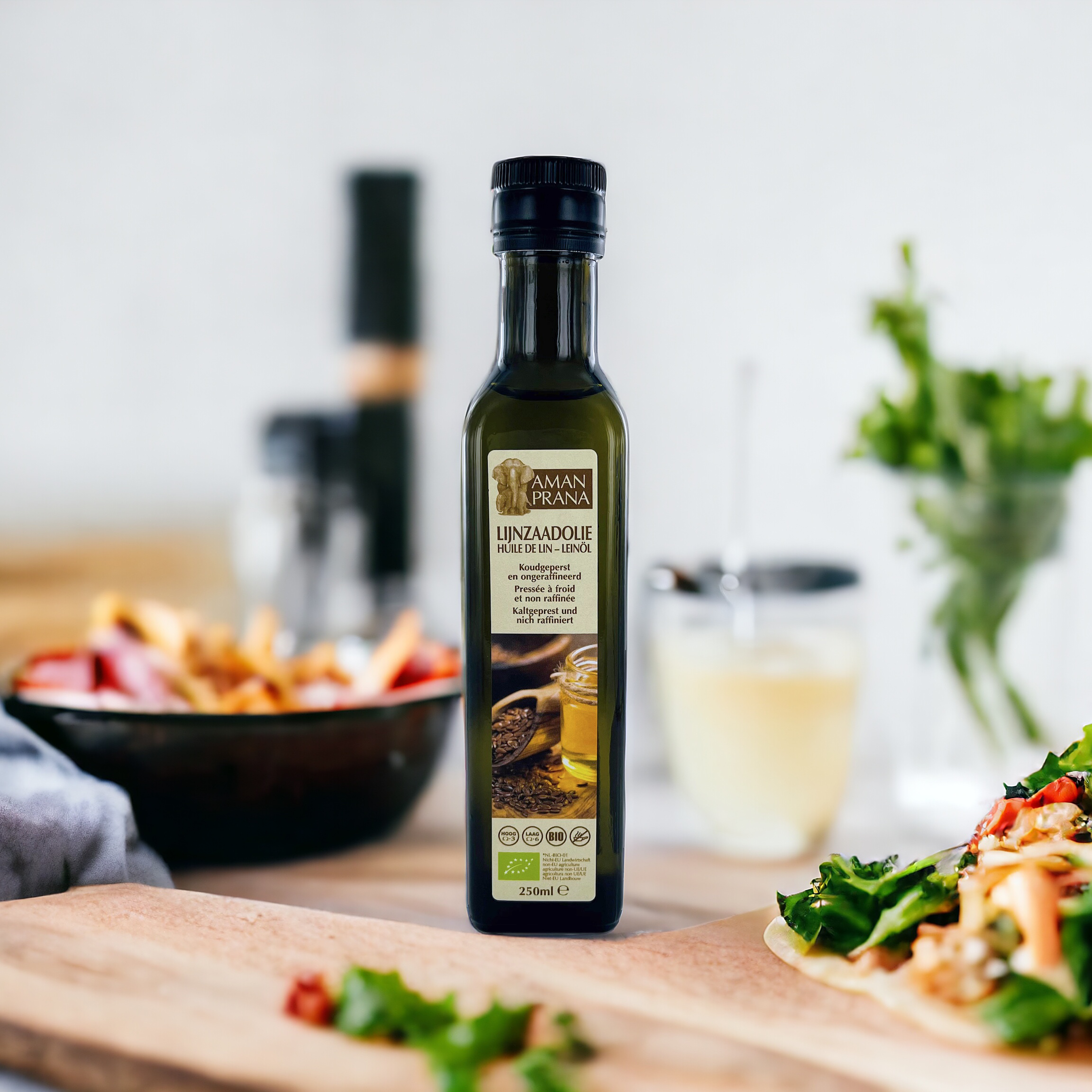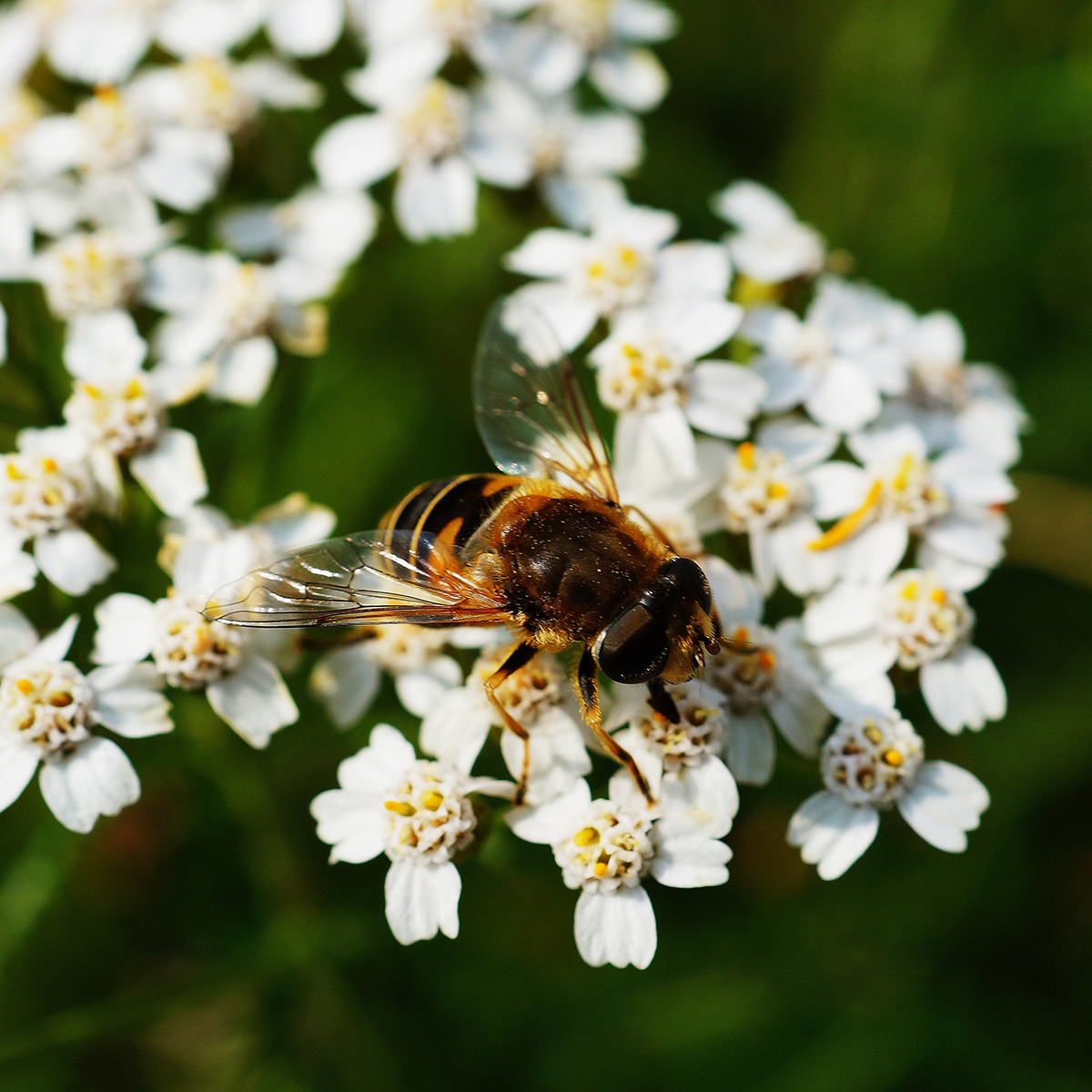
Rice milk, almond milk and oat milk are just some of the plant-based drinks that have made their way onto our store shelves, with more and more people going for plant-based milk because they want to eat vegan or vegetarian or because of a lactose allergy. However, not all plant-based milks are the same. For example, almond milk has a different taste to oat milk and has a different composition and nutrients. Rice milk may curdle in coffee, while it is better to use oat milk or coconut milk in soups and sauces.
What is plant-based milk?

Plant-based milk is a drink made by soaking nuts, seeds, grains or legumes in water and then mixing them. This mix is then sieved or squeezed out, leaving a milky substance.
You can make plant-based milk yourself, but not everyone has the time for this. Incidentally, some brands add extra nutrients, vitamins or flavours to their plant-based drink. In the case of sprouted rice milk, you can’t just go ahead and make it yourself. Here the brown rice is germinated according to a patented process, so the milk contains even more nutrients.
Use plant-based drink as lactose-free milk
Rice milk, oat milk and the like are a godsend for those who have a lactose allergy and, all of sudden, can no longer drink cow's milk. All plant-based drinks are free from lactose. Today there is a wide range of alternative milk to choose from.
- If you have a gluten intolerance, it is better not to drink oat milk, spelt milk or peanut milk.
- If you have a nut allergy, you obviously leave out the almond milk and opt for oat or rice milk instead.
Choose your plant-based milk according to taste
Plant-based drinks usually have a rather neutral taste, but there are some differences. This makes it worthwhile varying the type of milk you use depending on the dish or drink you want to make.
- Rice milk has a very neutral taste. Sprouted rice milk is a different story. This is made from whole grain rice and naturally sweetened by the germination process, leaving you with a full, creamy taste.
- Oat milk is slightly sweet and creamy.
- Almond drink has a subtle nut flavour.
The big advantage of plant-based drinks is that you don't have a pasty aftertaste, as can be the case with cow's milk.
Choose a nutritious plant-based milk
If you are buying a plant-based drink to replace cow's milk, you will undoubtedly want it to be just as nutritious. How do you define nutritious? That depends on what you need.
If you are watching the calories, it is best to drink almond milk. This contains hardly any or no carbohydrates. Mind you, there are also almond drinks derived from rice milk, in which case the amount of calories and carbohydrates differs. Berief's almond milk, for example, is made from drinking water and 7% almonds. It contains 0.5 g of carbohydrates. The Bridge's almond milk, on the other hand, is based on rice milk with 1% almond paste. Also very tasty, but contains 12 g of carbohydrates and is therefore less interesting if you want to watch your weight.
For children who are growing or who exercise intensively, you do need a plant-based milk with sufficient carbohydrates or proteins. Rice milk, spelt drinks and oat milk may be of value here. We ourselves choose BioSuRice® sprouted rice milk. It contains a maximum of good nutrients because it is made with brown or whole grain rice. By germinating the rice, there is even more potency in the rice and ultimately the milk. It has been said that this sprouted rice milk approaches the nutritional profile of breast milk!
-

Mr. Bio Food Bio SuRice® Sprouted Rice Drink 1L, organic
€ 3
✔ The first rice drink made from sprouted wholegrain rice
✔ Contains more nutrients due to the germination process
✔ With spring water from the Dolomites (no tap water)
✔ Without added sugar or flavourings
✔ Lactose-free, gluten-free, GMO-free
When do you use which plant-based milk?

Once you've found your favourite plant-based drink, you'll want to use it in everything instead of cow's milk. Not so fast; plant-based drinks have different compositions with different fat and protein ratios. Rice milk has a low protein and fat content, so it's not so appealing in coffee or hot dishes, in which it tends to curdle.
- All plant-based milk can be drunk or used as a base for your smoothie.
- You can also use any of them for breakfast with muesli, oatmeal or overnight oats. Go for sprouted rice milk or almond milk if slightly sweeter and richer in flavour is an option.
- You can use anything except rice, spelt or coconut milk in your coffee. Almond milk is our favourite. Does your milk curdle in coffee? Next time, try letting your coffee cool down a little before adding the milk, as it is the contrast between the very hot coffee with an extra cold rice milk, for example, that may lead to curdling.
- For a cappuccino or latte with a foam layer, use oat milk. Almond milk and coconut milk are also possible, but foam a little less well.
- We use oat milk in stir-fries, casseroles, sauces and soups. Canned coconut milk is still a winner for hot dishes.
What's the Best Plant-Based Drink?
In order to say which plant-based drink is the best, you really have to look at the quality as a whole. Taste and nutrients say a lot, but more and more major brands want to market an affordable plant-based drink. This does not necessarily mean that they are high-quality drinks, with lower quality grains often being used for mass production.
If you use plant-based milk on a daily basis and it is the basic drink for your kids, go for organic. Try spelt milk or drinks from new grains such as quinoa, amaranth, etc.
Rice milk is a safe bet, because rice is the most consumed grain in the world. Here too, you can go for more quality. Sprouted rice milk contains many more nutrients than other plant-based milks. The germination process transforms the rice into a superfood, making it more than just a drink. It becomes a real food. You can drink it as an afternoon snack, a quick bite before working out or while recovering after sport.












The information below is required for social login
Sign In
Create New Account